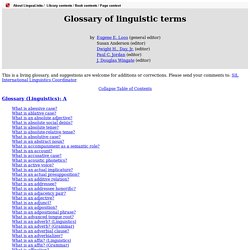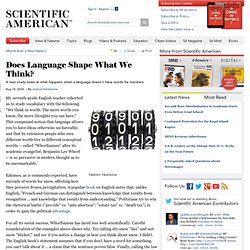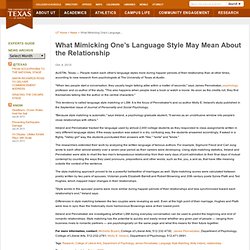

Linguistics glossary. Context for this page: Modular book: Glossary of linguistic terms, by Eugene E.

Loos (general editor), Susan Anderson (editor), Dwight H., Day, Jr. (editor), Paul C. Jordan (editor), and J. How Language Works. The Bouba/Kiki Effect. Language shapes preference. Does Language Shape What We Think? My seventh-grade English teacher exhorted us to study vocabulary with the following: "We think in words.

The more words you know, the more thoughts you can have. " This compound notion that language allows you to have ideas otherwise un-haveable, and that by extension people who own different words live in different conceptual worlds -- called "Whorfianism" after its academic evangelist, Benjamin Lee Whorf -- is so pervasive in modern thought as to be unremarkable. Eskimos, as is commonly reported, have myriads of words for snow, affecting how they perceive frozen percipitation. A popular book on English notes that, unlike English, "French and German can distinguish between knowledge that results from recognition ... and knowledge that results from understanding.
" Politicians try to win the rhetorical battle ("pro-life" vs. Mimicing Lanuage. Oct. 4, 2010 AUSTIN, Texas — People match each other's language styles more during happier periods of their relationship than at other times, according to new research from psychologists at The University of Texas at Austin.

"When two people start a conversation, they usually begin talking alike within a matter of seconds," says James Pennebaker, psychology professor and co-author of the study. "This also happens when people read a book or watch a movie. As soon as the credits roll, they find themselves talking like the author or the central characters. " This tendency is called language style matching or LSM.